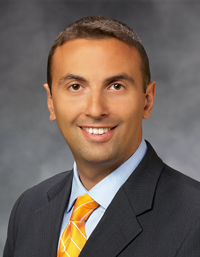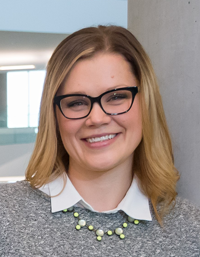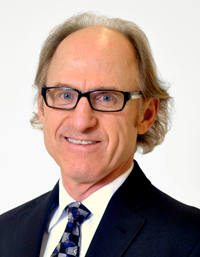
More than just a Master's
Through Edwards School of Business’ Master of Accounting Program, students learn how to think critically and build networks that last long after their education is over.

In 1997, Petre Kotev was living in Bulgaria, but he wanted to get a post-secondary degree from a North American university. He had always been a numbers and logic guy, he says, and thought an accounting degree would give him an interesting and dynamic career. So, that year, he packed his bags and moved to Saskatchewan to get his Bachelor of Commerce degree from USask’s Edwards School of Business.
While Kotev enjoyed commerce, his sights were set on finance and accounting. So, in 2002, he enrolled in the Edwards School of Business’ Master of Professional Accounting Program (MPAcc), the only accounting master’s program in Western Canada at the time. He chose the school because Edwards was one of the oldest business schools in Canada, and the program, which started in 1998, had a stellar reputation. He also wanted to tap into the benefits that graduate education provides, such as growing your personal and professional network, working on complex cases and graduate-level learning while keeping the door open to teach at post-secondary institutions.
“It made a lot of sense to me,” says Kotev, who is now a partner with KPMG in Calgary. “A classroom environment would enable me to not only build a strong technical base for accounting but also build relationships while obtaining a Master’s degree, which is a prerequisite to teaching.”
A school-first focus

When Michelle Malin, a professor of accounting at Edmonton’s Grant MacEwan University and a former accountant with MNP and Deloitte, decided to take the eight-month Edwards master’s program, it was an easy decision: “You have to either do a rigorous program and balance work and education or go to school for two four-month periods and get graduate level courses,” she says. At Edwards, students learn for four months, work for eight and then go back to school for four before moving on to write the CPA profession’s Common Final Examination (CFE). “I wanted to devote all my attention to my education.”
As with Kotev, she didn’t take the program just for the master’s degree. She wanted to meet other like-minded individuals and learn from some of the top accounting minds in the country. One of her tax instructors had such a profound influence on her, that not only did she go into tax when she worked in public practice, but she now tries to teach her accounting courses in the same engaging way. “She motivated me to explain tax rules in a similar way,” she says. “I incorporate a lot of influences from MPAcc because it was such an excellent program.”
Creating critical thinkers

While students must take everything from financial reporting and analysis to assurance to capstone courses, it’s not just what’s in the textbook that people take away from the program, says Gary Entwistle, a professor at Edwards and one of the founders of MPAcc. Rather, it's the critical thinking skills the school teaches through its courses that people need to get ahead. “They not only understand the current way of accounting, but they are challenged as to how accounting can be improved and how it can be better,” he says. “That’s what graduate learning is about—people leaving as critical thinkers.”
The program also instills a love of learning, in accounting and business especially, says Entwistle. A number of people have gone into teaching after graduating and many continue taking other courses and designations, either through work or elsewhere. That’s what happened with Kotev. He was so inspired by what he learned at Edwards that he wanted to teach financial accounting, which he did for five years post-graduation. “I wanted to work with the best and brightest,” he says. “And everyone at MPAcc, students and teachers, are at the top of their class.”
Although Kotev has since stopped teaching at Edwards, he continues to teach courses at KPMG works through complex technical accounting issues with his clients, some of whom are former students and classmates. His degree has also helped him see the world. “I’ve been on almost every continent,” he says. Kotev believes Edwards has played a big part in his success. “Edwards really opened a lot of opportunities and I continue to learn new things every day,” he says. “The school still feels like home.”
To learn about MPAcc and admission requirements, please visit edwardsmpacc.ca.
This article first ran as part of the CPA Canada News Hub.
